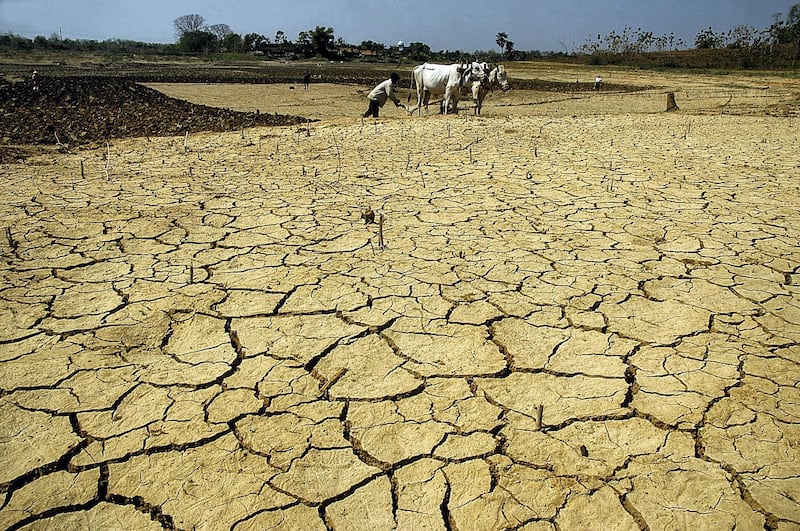Global food stocks face a growing threat from a rising population, climate change and the over-use of pesticides, an event in Dubai heard.
The first Food Security Forum was told that drought and famine are also interrupting vital supplies in some of the poorest countries.
“Food security is by all accounts a global challenge,” Mariam Al Muhairi, Minister of State for Future Food Security, told the forum, which is part of the Gulfood trade exhibition.
“The reality is, despite all the progress human societies have made, food insecurity, the real threat of hunger, drought and devastating famine remains all too prevalent.”
Ministers of agriculture met on Wednesday to discuss ways in which governments and the private sector can work together to help alleviate the burden facing the planet in the future.
The number of undernourished people increased from 770 million in 2015 to 842 million in 2016 - meaning one eighth of the world population still lacks food security.
“This triggered global action knowing food is among the basic needs of human beings,” Ms Al Muhairi said. “It’s an issue that requires international cooperation to affect positive change. This is where globalisation can be a highly effective instrument.”
She said a number of initiatives to promote ease of doing business could help facilitate food security, like the removal of technical barriers to trade and empowering the private sector to pitch in through their resources.
_____________
Read more:
Opinion: Producing more food in the UAE can help us maintain food security in the long term
How RAK's Digdagga experimental farm revolutionised agriculture in the 1960s
_____________
“In the UAE, we support the fluent movement of agricultural products to different parts of the world by connecting producers and consumers,” Ms Al Muhairi said.
“Embracing advanced technologies is another aspect to consider, avant-garde and innovative technologies can be a major factor in promoting a sustainable food-secure future.
"Thinking outside the box leads to efficient solutions – we have an opportunity to lead by example and set the tone for global cooperation and we wish to see food security for everyone, everywhere now and into the future.”
Research shows that the bulk of people who suffer from food insecurity are in outlying rural areas.
“Other challenges are a high level of wastage, climate change and attacks by pesticides,” said Dr Ashraf Mahate, chief economist at Dubai Exports.
“Science and technology is of course a great resource that we can use to arrive to solutions and it is extremely timely. Work between the government and the private sector is a bridge that needs to be reinforced time and time again if we are to have sustainable solutions to food security.”
It is estimated that by 2050, the world will need to produce about 50 per cent more food to feed the growing population.
For the UAE, which imports about 90 per cent of its food, the situation is critical.
But a number of countries will be able to help feed the growing population in the future, including Russia, whose minister of agriculture, Aleksandr Tkachyov was at the forum.
“In the last few years, Russian agriculture has rapidly developed and exports have doubled in the last 10 years. One of our major client is the Middle East and North Africa region and it is our main priority – this will allow us to open a new page," he said.
Uganda is another example of an agricultural country, with agriculture supporting up to 80 per cent of its population in terms of employment and food security.
Okello Oryem, Uganda’s Minister of State for Foreign Affairs, also spoke at the forum, highlighting the fact his country produces coffee, grains and oil crops like palm oil, soybeans, sunflower, as well as cotton, but is looking for greater investment to ship food abroad.
“So we’re ready for people who can invest in the production, processing, packaging and export of food. Uganda is all of ours as we are aware of the issues of food and water being the most scarce resources in the future," he said.
Gulfood, which is being held at Dubai World Trade Centre, concludes on Thursday.






